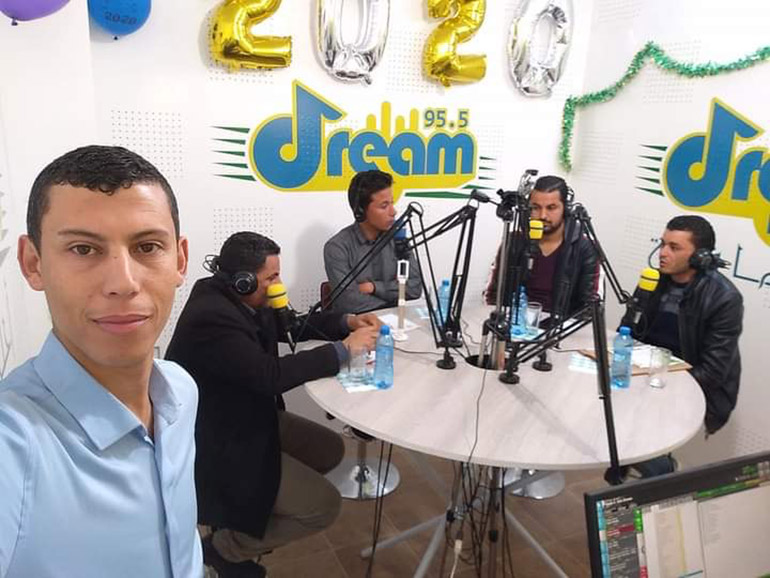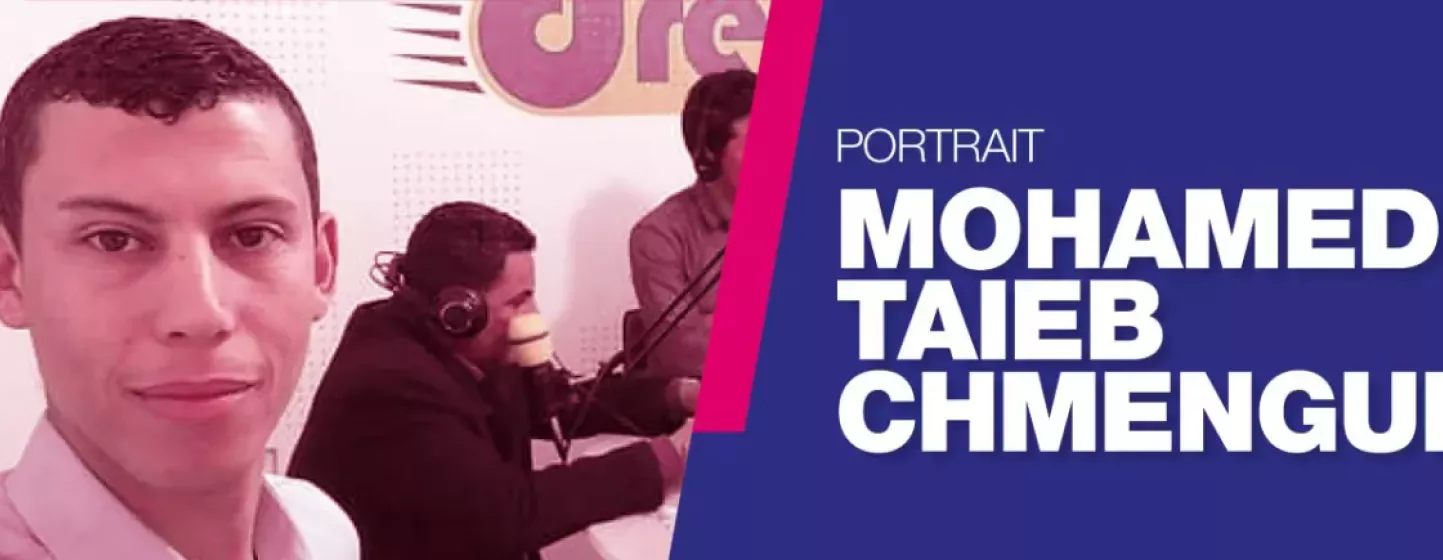Mohamed Taieb Chmengui: Dream FM or the dream of an independent radio station for Tunisian citizens
To mark World Radio Day on 13 February, CFI is inviting you to discover more about the career paths taken by three radio journalists from the Democratic Republic of the Congo, Syria and Tunisia.
Major Tunisian media organisations generally hold a media monopoly in the country. This is something that Mohamed Taieb Chmengui wants to change. He is the founder of Dream FM, a local public radio station in Kairouan, Tunisia.
A profile by Lou Mamalet.
Mohamed Taieb Chmengui is 33 years old and runs Dream FM, a Tunisian public radio station that he also helped get off the ground. The station broadcasts cultural and political news and stories of public interest from the governorate of Kairouan. However, the former mechanical engineering student with a Master’s degree in renewable energy admits that he entered this career by chance. “I really valued community life as a student, and given that I did not have any sort of talent for politics, I instead chose to get involved with journalism at a local media organisation”.
Having already briefly gained some experience as a radio host for a music programme at a commercial station while he was a student, he decided to give it another shot, this time adopting a more engaging and socially active approach:
“I have always believed that radio could transcend mere entertainment and be a way to change the world”.
In 2016, he then went on to create Dream FM with colleagues from a cultural organisation in the region in which he coordinated various activities. During this time, HAICA (Independent High Authority for Audiovisual Communication) in Tunisia was inviting applications from emerging radio stations to receive broadcasting licences. Their successful application meant their dream turned into reality.
Committed public media
Radio is an effective method of communication and raising awareness in the governorate of Kairouan, where 75% of its 60,000 inhabitants work in the agricultural trade. Dream FM very quickly became a media organisation that promoted local development and raised awareness, as the host explains:
“Freedom of speech requires information from a range of sources and that is why we wanted to create a space where we could hold discussions that go ignored in Tunisia’s national media”.
To provide more and more content to the people of Kairouan, volunteers at Dream FM forged ties with various partners in the region and abroad, including Cawtar (the Center of Arab Women for Training and Research), Aswatona, the German Embassy, PNUD, the French Institute of Tunisia and institutions such as CFI. As Mohamed explains, “The agency helped us to roll out our media coverage of the 2019 general election. Thanks to CFI’s funding and strategic support, not only were we able to run radio advertisements encouraging people to vote, we also organised electoral debates between the different candidates in Kairouan”.

At the start of the Coronavirus pandemic, further support arrived from a partner that intended, this time round, to raise awareness of the epidemic’s risks and to widely circulate scientific information, as Mohamed explains in more detail.
“We first got involved with data journalism in order to give people wider access to information related to the epidemic, which we did through graphics posted on our social media accounts, but also through interviews with regional officials who we invited onto the air, such as the Governor of Kairouan, the Regional Director of the Post Office and the Mayor of Kairouan.”
Mobilising young people
Today, there are more than 26 young volunteers, students and civil society activists working to make Dream FM a reality. A mission that they plan to see through to the end, even if challenges exist whenever a country’s democracy is being completely transformed, which is the case in Tunisia:
“Although Tunisia remains one of the Arab countries where the press has the greatest level of freedom, it will take time before Tunisia’s media becomes truly independent. The Arab Spring in 2011 was borne out of a desire for democracy and this can only become a reality if there is an independent press. Dream FM matches our own dream – to create an independent media organisation that is appreciated by the people. But nothing is for granted, it’s an everyday challenge.”
Mohamed’s more immediate ambition is to digitise Dream FM, which would allow it to extend its coverage throughout the entire country and provide every Tunisian with access to free, public information.

